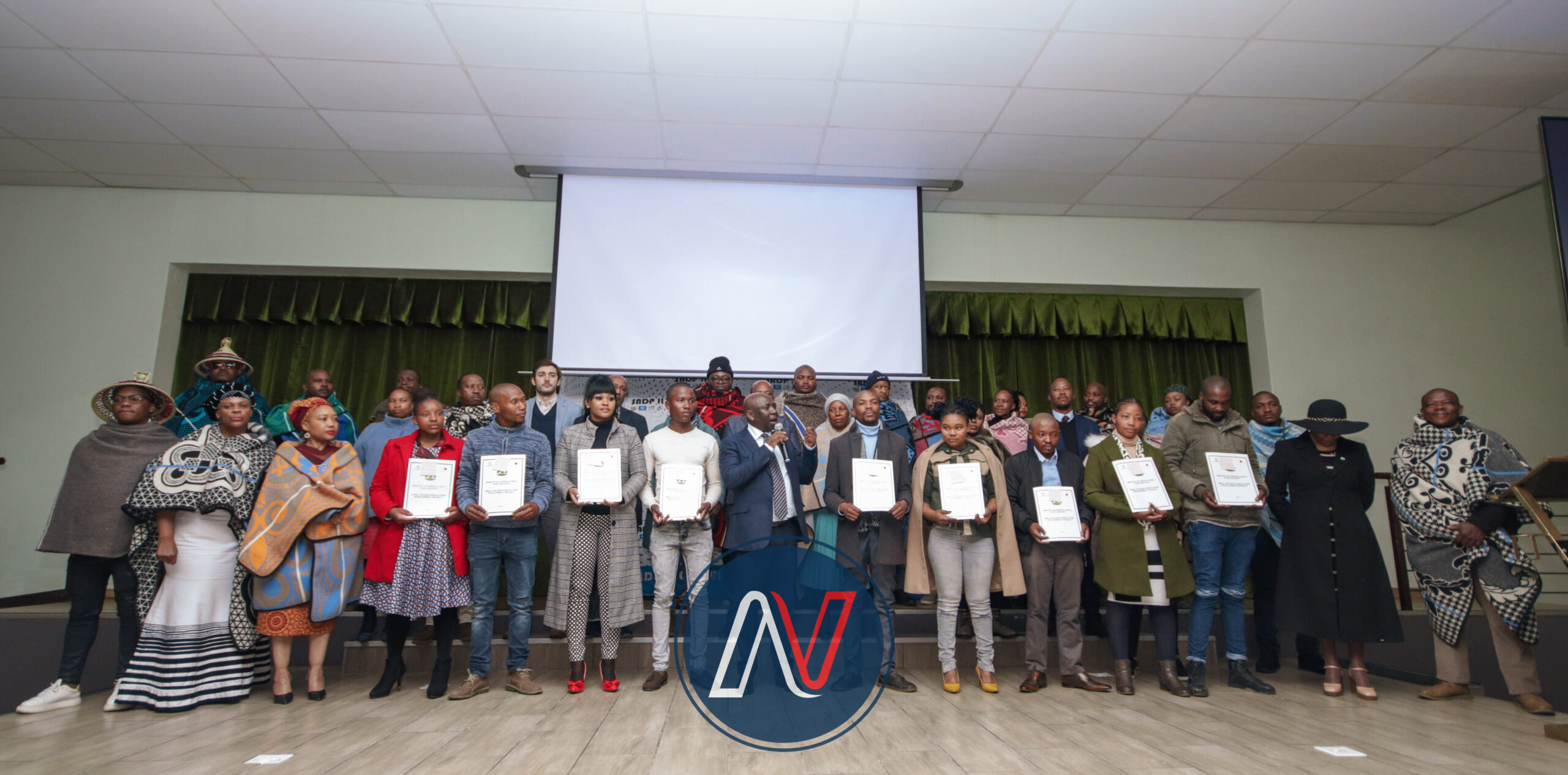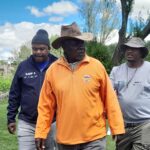Ntsoaki Motaung
The Smallholder Agricultural Development Project (SADP) director ‘Malichaba Nkhethoa has encouraged the project workers to further their studies to bridge the skills gap in the agricultural sector.
Nkhethoa said the move would help the government as well as the SADP to stop outsourcing agricultural consultants from other countries.
Nkhethoa said this recently during the capacity-building training on Agro- Weather Tools that was held in Qacha’s Nek.
The training attracted participants from the Ministry of Agriculture Food Security and Marketing, SADP as well as the Lesotho Meteorological Services (LMS), and other stakeholders.
Nkhethoa indicated that most of the participants were still young and, therefore, could afford to go back to school. “After school, it will be very easy to be contracted as a consultant because we know you already had the skills even before,†she said.
She further stated she had learned that one of the biggest challenges in the country was the shortage of agriculture specialists.
She said agriculture was a science and gone are the days when people resorted to agriculture when they retired from their professional jobs.
“Times have changed and people who do not know what to do should not see agriculture as their way out resort anymore. Climate Change has brought many challenges which need some level of skill for one to become a farmer,†she said.
She indicated that for the training to happen, one consultant was sourced from the Netherlands while the other one was sourced locally.
Nkhethoa stated that follow-ups would be made to evaluate whether the workshop had any impact on the attendees.
Tsotelo Lebete, a specialist in the office of climate-smart agriculture, said the training was aimed at equipping participants with skills to integrate climate change issues into the programming of agriculture.
Letebele said it was prompted by the challenge facing farmers – the effects of climate which he said call for different farming methods that are climate smart.
“Years back, it was easy to predict when the rain will fall and when winter will come. But due to climate change, we are now unable to make such predictions hence we have to stay prepared for anything,†he said.
He indicated that apart from other effects of climate change which include drought, there are emerging new diseases which attack plants. “He indicated that they are new diseases at least to Lesotho’s context,†he said.
He said the training was also aimed at looking at how best the prediction messages of weather from the LMS could reach farmers in time and the most suitable mode of communication.
He indicated that the consultants helped the project develop Agro-Weather Tool which is going to be used to generate information to be passed on to the farmers.
‘Matsoanelo Ntlopo, Crops Production Officer (Horticulture), said the training was important because “it is going to result in increased production by farmers once the right messages have been passed on to themâ€.
Ntlopo said the changes may not be seen very soon but would eventually come.
“When it comes to SADP beneficiaries, a positive change may start to be seen in the next season,†she said.
She said the reason agricultural production kept declining instead of increasing was that most of the farmers were still stuck with the information from years back.
“They are stuck with the information not because there is nothing they can do but they are not provided with the new information which will keep their production high even when climate change has hit hard,†she said.
According to Dr Brian Muroyiwa, one of the consultants, producers of agro-weather information need to understand the needs of their farmers and that the type of weather information needed for the decision-making process depends upon the nature of the decision itself.

Your Trusted Source for News and Insights in Lesotho!
At Newsday Media, we are passionate about delivering accurate, timely, and engaging news and multimedia content to our diverse audience. Founded with the vision of revolutionizing the media landscape in Lesotho, we have grown into a leading hybrid media company that blends traditional journalism with innovative digital platforms.












